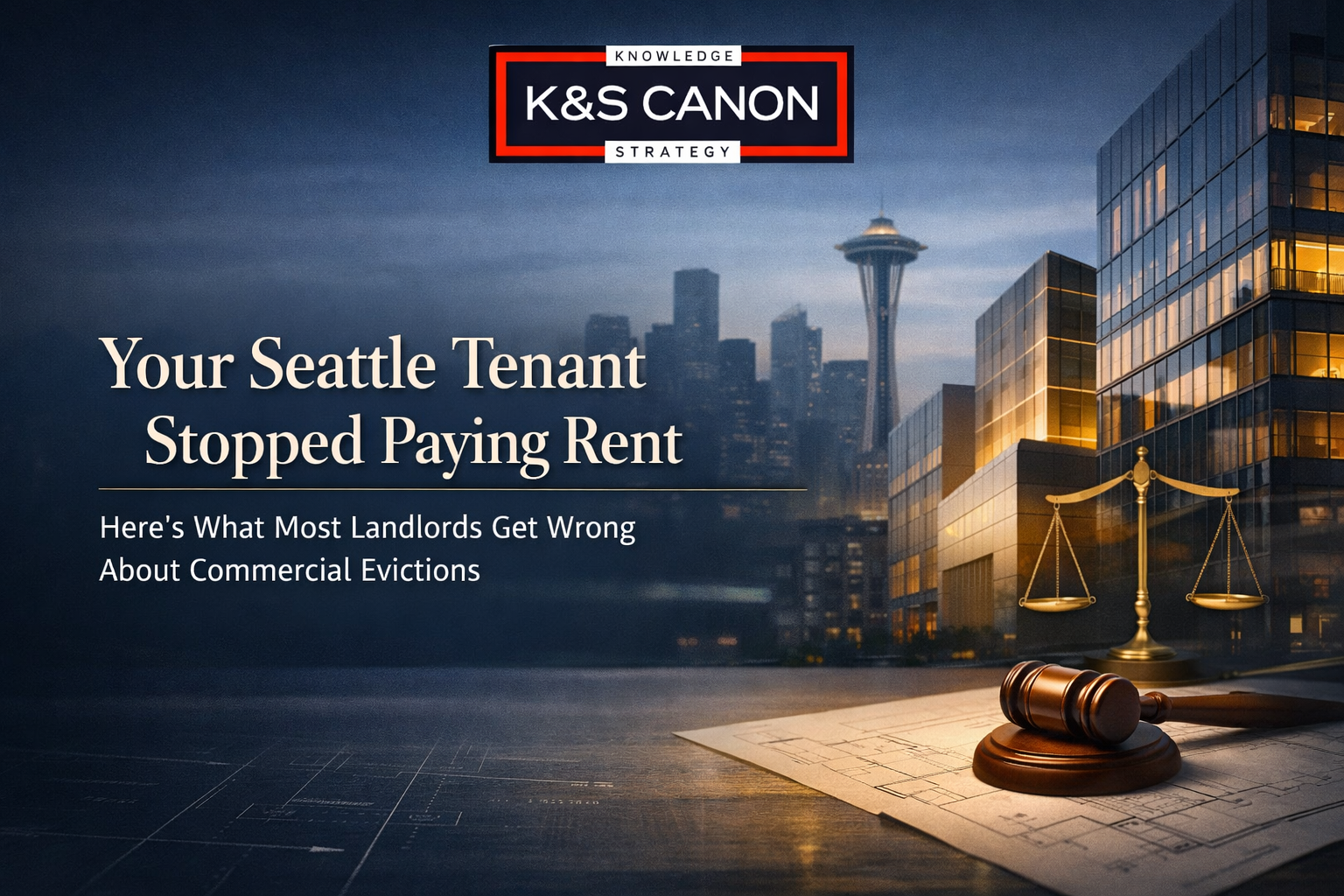Commercial Leasing: Health Club Considerations and Negotiation Strategies

Commercial leases for specialized facilities require industry-specific provisions. This blog post examines key considerations for health clubs and general negotiation strategies for all commercial leases in Washington State.
Health Club Leasing Essentials
Fitness facilities face unique leasing challenges that require specialized provisions to support their operational needs and customer experience.
Sound and Vibration Management
Noise mitigation represents one of the most significant concerns in health club leasing. Provisions for sound attenuation, particularly for weights, group fitness classes, and music, can help prevent conflicts with neighboring tenants and potential lease violations.
Vibration allowances establish reasonable standards for equipment-generated vibrations that may affect adjacent tenants. These provisions should specify acceptable levels and required mitigation measures for heavy workout areas.
Infrastructure Requirements
HVAC capacity deserves particular attention in fitness facility leases. Enhanced ventilation and cooling capacity beyond standard commercial requirements directly impact member comfort and equipment longevity.
Plumbing infrastructure specifications should address amenities like locker rooms, showers, pools, and water fountains. These facilities require more extensive plumbing than typical commercial spaces, affecting both buildout costs and ongoing maintenance.
Operational Flexibility
Access provisions must accommodate member expectations. Many fitness facilities offer 24/7 operational rights, requiring specific lease language ensuring uninterrupted access without additional charges.
Flooring considerations impact both equipment installation and member safety. Terms addressing specialized flooring for different activity zones should specify both installation rights and maintenance responsibilities.
According to the Health & Fitness Association (formerly IHRSA), fitness facilities with successfully negotiated 24/7 operational rights average 22% higher membership retention compared to clubs with restricted hours.
Effective Lease Negotiation Strategies
Successful commercial lease negotiations require preparation and strategic timing regardless of industry type.
Pre-Negotiation Planning
Space requirement assessment forms the foundation of effective lease negotiation. Calculate current needs plus reasonable growth projections for the lease term to avoid costly amendments later.
Budget parameters should be established before negotiations begin. Determine affordable base rent and additional costs including CAM charges, utilities, and tenant improvements to maintain negotiating leverage.
Location priorities vary by industry and business model. Rank the importance of factors such as customer accessibility, proximity to suppliers, visibility, and parking to focus negotiations on truly essential elements.
Strategic pre-negotiation planning can yield 7-12% more favorable lease terms compared to unprepared tenants, according to CBRE Research.
Timing Considerations
The optimal lease term varies by industry:
- Retail and restaurants often benefit from longer terms (7-10 years) with renewal options to amortize substantial build-out costs
- Office tenants may prefer shorter base terms (3-5 years) with multiple renewal options to maintain flexibility
- Industrial users typically seek longer terms (7-15 years) to justify operational setup costs
- Medical practices often negotiate 10+ year terms to recover significant specialized improvements
Negotiation Timeline
Proper timing significantly impacts negotiation leverage. Begin market research and any space-needs assessments about 9-12 months before the current lease expiration.
Consider engaging broker representation and begin touring alternative locations 6-9 months before the expiration deadline. This provides adequate time to evaluate options while maintaining leverage with the current landlord.
Submit initial proposals to current landlord and alternative properties 4-6 months before expiration. This timeline allows for meaningful negotiation while preserving relocation options if terms cannot be reached.
Tenants who begin the renewal process at least 9 months before lease expiration secure terms averaging 7-14% more favorable than those who start later, according to the Commercial Real Estate Development Association.
Washington State Legal Considerations
Commercial leases in Washington State operate under specific legal frameworks that differ from residential leases in important ways.
Washington has eliminated notary requirements for commercial leases, streamlining the execution process. This change particularly benefits businesses with remote signatories or those using electronic signature platforms. Nevertheless, a notary remains optional and may be beneficial for recording in the event of mortgage refinancing or property sale
Seattle ordinances provide additional protections, including limitations on personal guarantees in commercial leases. These local regulations are designed to support small businesses by reducing personal financial exposure for business owners.
Unlike with residential leases, commercial tenant rights in Washington State primarily stem from the lease agreement itself rather than statutory protections. This makes thorough legal review particularly important for any commercial tenant before signing a commercial lease.
Contact K&S Canon for Your Commercial Lease Legal Needs
Attorney guidance when negotiating industry-specific commercial leases can help secure favorable terms aligned with your business requirements. Contact K&S Canon today to discuss how their legal services can support your health club or other commercial leasing needs.
Disclaimer: This blog post is for informational purposes only and does not constitute legal advice. Commercial lease regulations may vary by location and change over time. Consult with a qualified attorney for guidance specific to your situation.




